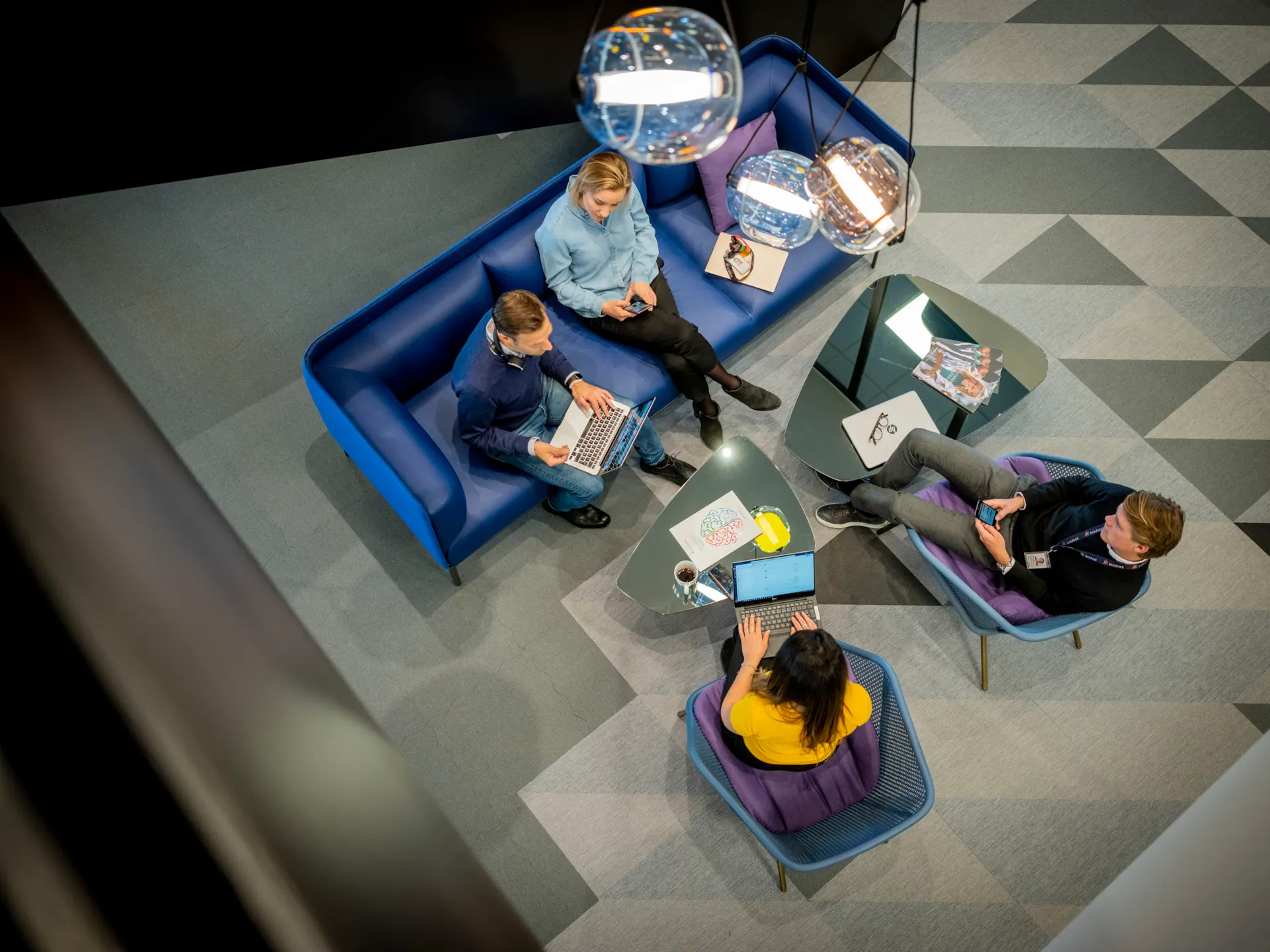
Kindred’s hybrid working policy was launched a few months ago. Our approach to hybrid working aims to enable optimum performance and engagement from teams. According to our employees, allowing flexibility is important. At the same time, as a highly regulated organisation, we must follow any guidance on where people are advised to be working. Hybrid working at Kindred is where you can agree with your manager and team on what work you can do remotely and what needs to be done in the office.
 We spoke to Fredrik Eggen, Head of Player Risk and asked about his experience with the new working model. Fredrik has been with Kindred for four years and in the industry for nearly 14 years. His area currently covers six teams with approximately 60 employees, dealing with anything from fraud prevention to ensuring customers’ activity is sustainable.
We spoke to Fredrik Eggen, Head of Player Risk and asked about his experience with the new working model. Fredrik has been with Kindred for four years and in the industry for nearly 14 years. His area currently covers six teams with approximately 60 employees, dealing with anything from fraud prevention to ensuring customers’ activity is sustainable.
Fredrik, what does hybrid work mean to you?
It means flexibility and freedom of choice. Some people prefer coming to the office every day, while others want or need to work more from home. The important thing is that it allows for individual choice, meaning that everyone can adjust their working schedule to their individual needs. That said, there is no ‘unlimited flexibility’ and everyone is expected to spend some time in the office. Not everyone will agree with that, but I think it’s important to remember that there is a lot of value in being around colleagues. Being in the office enables team building, knowledge-sharing, and the formation of relationships to a much greater degree than remote work does.
Has it affected your management style?
I don’t think it has. At this point, I think everyone has adapted to managing people who work remotely – Covid didn’t really leave us with much of a choice. Of course, there are things that need to be done differently, but I don’t think how our management team operate has changed just because there is more remote work. What we value, our management approach, and the standards we set, remain the same.
Hybrid working at Kindred is where you can agree with your manager and team on what work you can do remotely and what needs to be done in the office
What kind of work is easier to do from home? What brings you to the office?
Aside from meetings that would have been online anyway, there isn’t much that’s ‘easier’ to do from home, at least in my role. Of course, everyone has their own preferences, but I personally very much value my morning routine and a walk to the office and prefer being around people rather than staying at home.
As mentioned earlier, I do find the office environment extremely valuable, both to build good relationships with your colleagues, but also for all the intangible bits of information and knowledge you pick up. It could be joining a conversation with someone trying to solve a problem, or just discussing something at lunch. I think you can learn a lot from that, and you just aren’t exposed to those ad-hoc conversations at home. It also helps that we have great facilities with an excellent food service – that makes it a lot more enticing to go to the office.
How has your team adapted to hybrid working?
First, I must say that everyone has adapted well to remote working; our results have continued to improve throughout Covid and the new hybrid working model, so it shows that the responsibilities are still being managed well despite the more flexible arrangements.
Before the hybrid working model, the main issue for a lot of people was that, despite having to work remotely, they were not being able to work from their home countries. I believe this was done primarily to mitigate the risk of people getting stuck in a foreign country; this happened quite a few times at the beginning of the pandemic, so it was a genuine and understandable risk from the Company’s perspective. It was, however, equally understandable that the lack of flexibility was frustrating for a lot of employees, especially those who had not been able to meet family and friends for a long time. The hybrid working model now caters for that and has enabled my colleagues to stay in their home country combining annual leave and work, and from what I hear, most people are very happy with this solution.
Do candidates ask for flexible working solutions?
There are, of course, some questions, but I haven’t gotten the impression that this is a critical factor for most candidates – at least not yet. In fact, employees who have started more recently seem to prefer coming to the office more than working from home. That said, I am sure expectations from candidates around this topic will only increase, as more and more companies and industries adapt in this direction.

